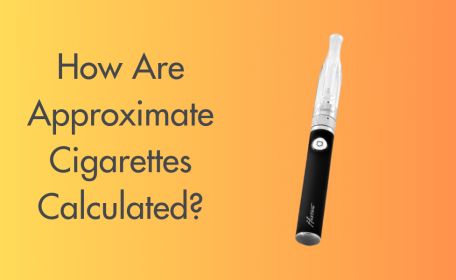← Back


Vaping: what do the scientists say?

Is vaping better for your health than smoking? We explore why some scientists consider vaping to be a public health success story and why others are concerned that there’s too much we don’t know about e-cigarettes.
Many scientists and health organisations, including Public Health England and Cancer Research UK, see vaping as a safer alternative to smoking. They argue that vaping is a way for smokers to get the nicotine they want without the health drawbacks of tar or carbon monoxide. They have three main reasons for this belief:1. “E-cigarettes are 95% less harmful than tobacco” — Public Health England
Based on the best available evidence, scientists agree that vaping is less harmful than smoking. This is largely due to the fact that cigarettes contain many more toxic chemicals than the e-liquid in e-cigarettes. It is also important that two of the most dangerous chemicals in cigarettes, carbon monoxide and tar, are not present in e-cigarettes. This is why the World Health Organisation says that e-cigarettes are “less toxic for the smoker than conventional cigarettes”.2. “If all the smokers in Britain stopped smoking and started using e-cigarettes, we would save 5 million lives” — Professor John Britton
Most scientists believe that e-cigarettes have the potential to save lives because they are safer than cigarettes. Smokers who switch to vaping will no longer inhale the carbon monoxide and tar that is present in cigarettes, which means they are much less likely to suffer a heart attack or develop lung cancer. Many scientists support e-cigarettes because of this ‘harm reduction’ potential. As Dr Christian Jessen explains, “vaping is better for your health than smoking, by about a hundredfold”.3. “We support a balanced approach towards e-cigarettes which maximises their potential to help people quit smoking” — Cancer Research UK
Health organisations, including Cancer Research UK, argue that we should be helping the smokers who are trying to quit. They believe that e-cigarettes are one potential way of quitting smoking. The NHS agrees with this strategy and it looks like vape pens will soon be made available on prescription. These organisations know firsthand that smoking is incredibly dangerous, so they argue that we should be doing everything in our power to stop smoking.What about the scientists who are against vaping?
Not everyone is in favour of vaping. Vaping critics have two main arguments against e-cigarettes: 1) they argue that we don’t know enough about vaping to be 100% certain that it is safe. 2) They argue that vaping will cause smoking to become popular again.4. “E-cigarettes are not neutral in terms of the effects on the lungs” — Professor Shyam Biswal
Critics of vaping are keen to point out that e-cigarettes are a fairly new technology. They say that we might discover that vaping is dangerous at some point in the future, so we should act now to prevent vaping from becoming popular. This argument only makes sense if you are a non-smoker. Though vaping is safer than smoking, it’s probably not quite as safe as inhaling fresh air. However, smokers already have a habit which we know for certain to be dangerous. For them, switching from a certainly dangerous habit (smoking) to a habit which we know is safer (vaping) is a sensible move.5. “It is not known whether e-cigarettes may lead young people to try other tobacco products*” — The Food and Drug Administration (FDA)
Critics also argue that vaping may cause young people to take up smoking. This is known as the ‘gateway theory’. They argue that if young people become accustomed to nicotine thanks to vaping, they will one day want to try ‘the real thing’. The problem with the gateway theory is that it has never been documented. Action on Smoking Health (ASH), a UK anti-smoking charity, found that “e-cigarettes are not a gateway to youth smoking”. If the gateway theory was correct, we would expect to see more young people taking up smoking. Thankfully, the opposite seems to be the case. Young people have largely stopped smoking and started vaping, so youth smoking is currently lower than it has ever been. The data suggests that, if anything, e-cigarettes are a gateway out of smoking for young people.
























